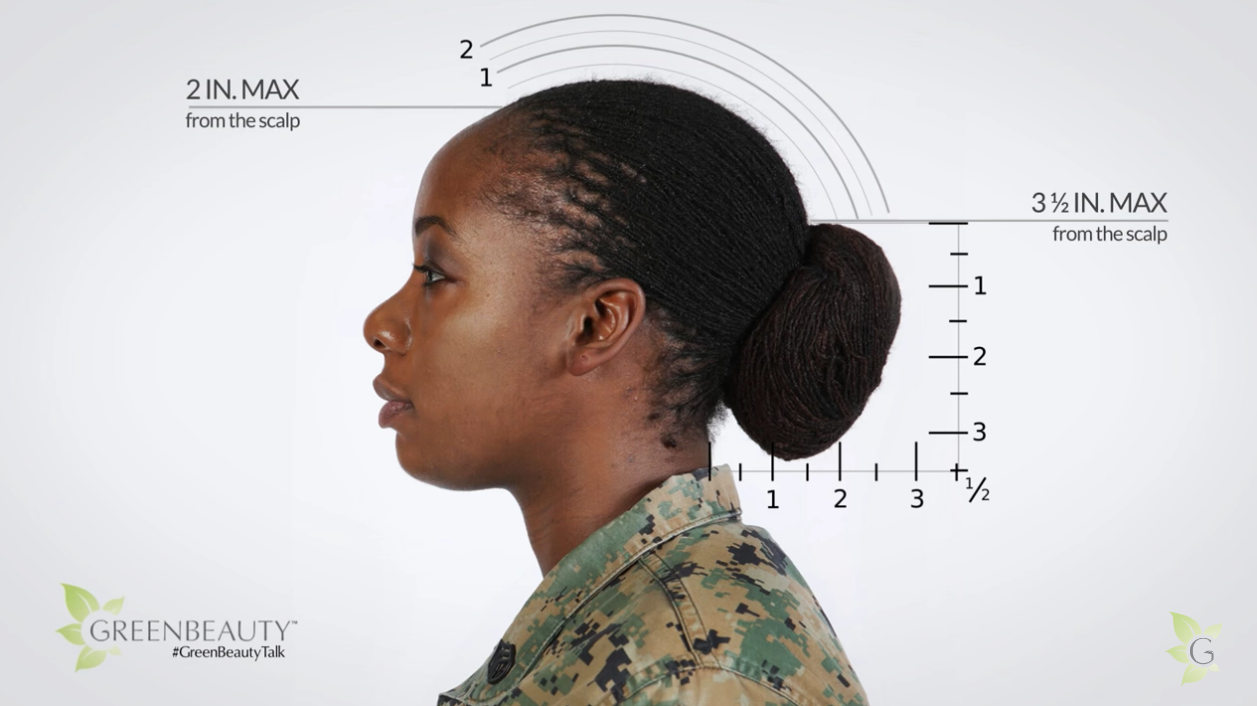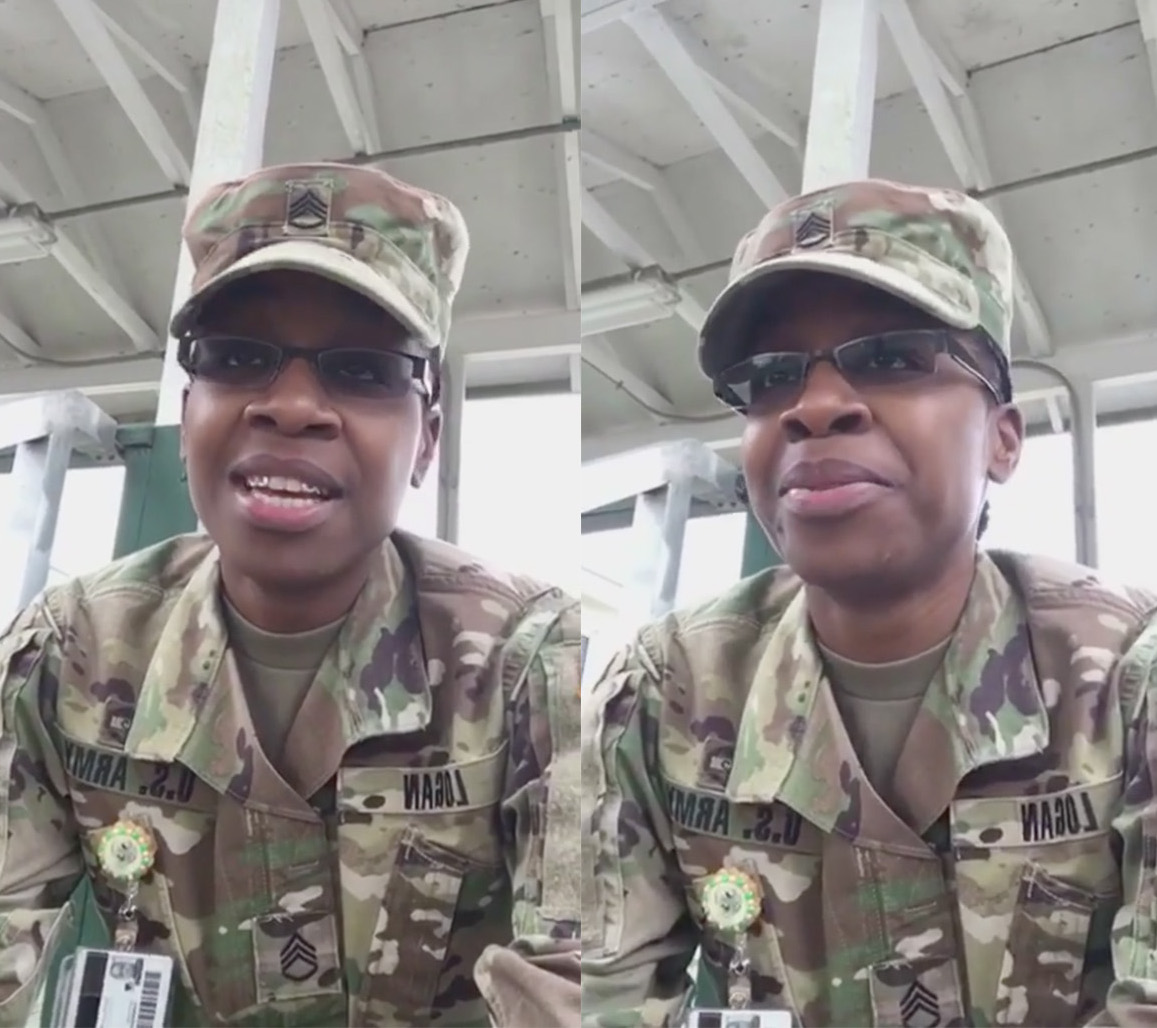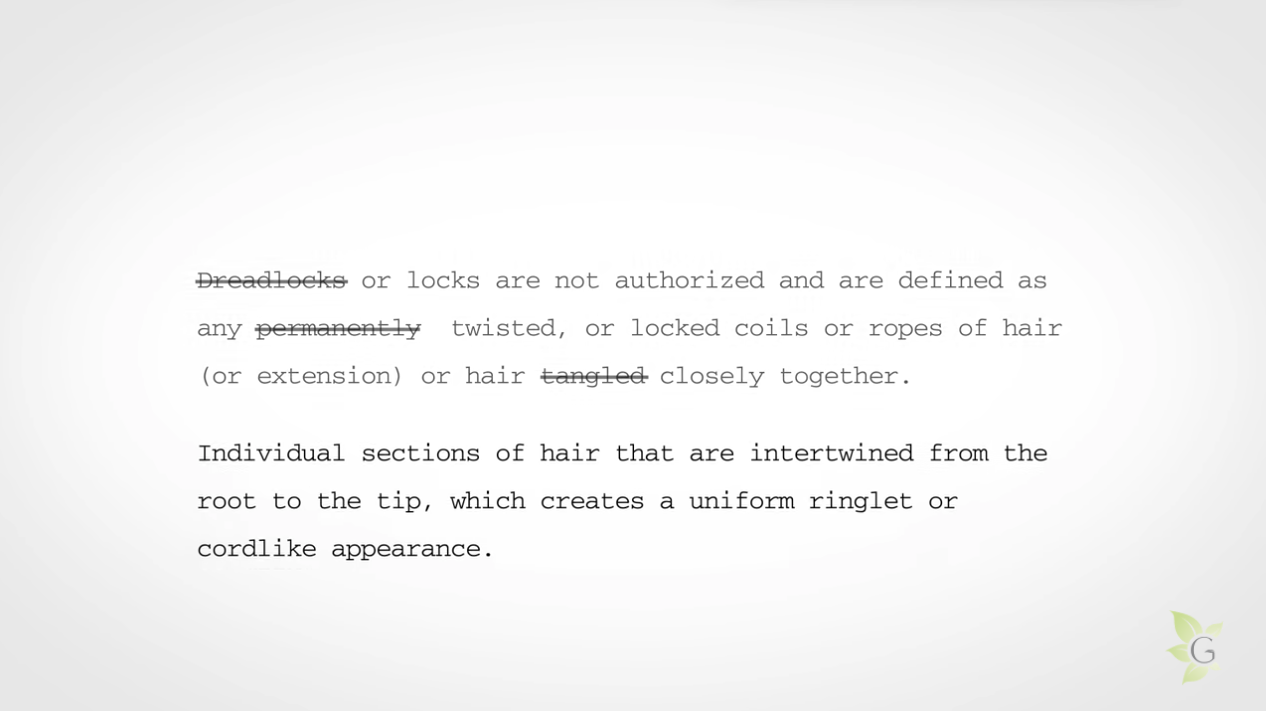Culture February 11, 2017


A new directive has finally lifted the army ban on dreadlocks.
Black female soldiers such as Staff Sgt. Chaunsey Logan of Fort Stewart in Georgia have been celebrating the change, which marks an end to years of struggling to comply to the rules.
Logan took to Facebook to celebrate the news with a six-minute video, which also detailed the time she almost lost her position due to strict hair regulations.
Though the problem was later resolved, Logan was under continued scrutiny from her colleagues, and often worried about running into more issues.

Staff Sgt. Chaunsey Logan of Fort Stewart in Georgia celebrated the lifting of the dreadlocks ban with a Facebook video.
Logan admitted that when she saw the new directive – after taking a moment to praise the Lord for it – she rushed to print it out to make sure it was real. “I need my hands on this just in case it disappears from the internet,” she said.
Fellow women in uniform felt similar relief, such as Captain Danielle N. Roach, who had previously turned to harsh chemical treatments to keep her hair straight for regulations.
To maintain the look she had to go in for treatments every four to eight weeks, with each session costing up to $80. She believes the regulations were unfair to black women that since the regulations were subject to interpretation it made them “walking targets.”
First Lt. Whennah Andrews, a member of the National Guard, even worked with Nikky Nwamokobia, who runs a natural beauty channel on YouTube, to make a case for dreadlocks in an informative video shared to YouTube in September 2016.


A video arguing against the ban shows the problematic phrasing of the original document. Image via YouTube/Green Beauty Channel
In it, they explain the problematic phrasing of the previous army regulations, which used words such as “tangled” to describe dreadlocks, making them sound sloppy and perpetuating the notion that natural hair is unprofessional.
Following a study that showed the outrageous bias against black women’s natural hair, this new army directive is a step toward breaking the stigma against dreadlocks and natural hair.
RELATED: Study Finds White Women Hold Strongest Bias Against Black Women’s Hair
Female soldiers will be allowed to wear dreadlocks in uniform so long as “they are in accordance with with the guidance in paragraph 3-2a(3)(f) for braids, cornrows, and twists.”
The new regulations also allow for Sikh men to wear beards and turbans and Muslim women to wear hijabs.
In a time when so many rights are being threatened, this new army directive has the U.S. finally taking a step in the right direction.